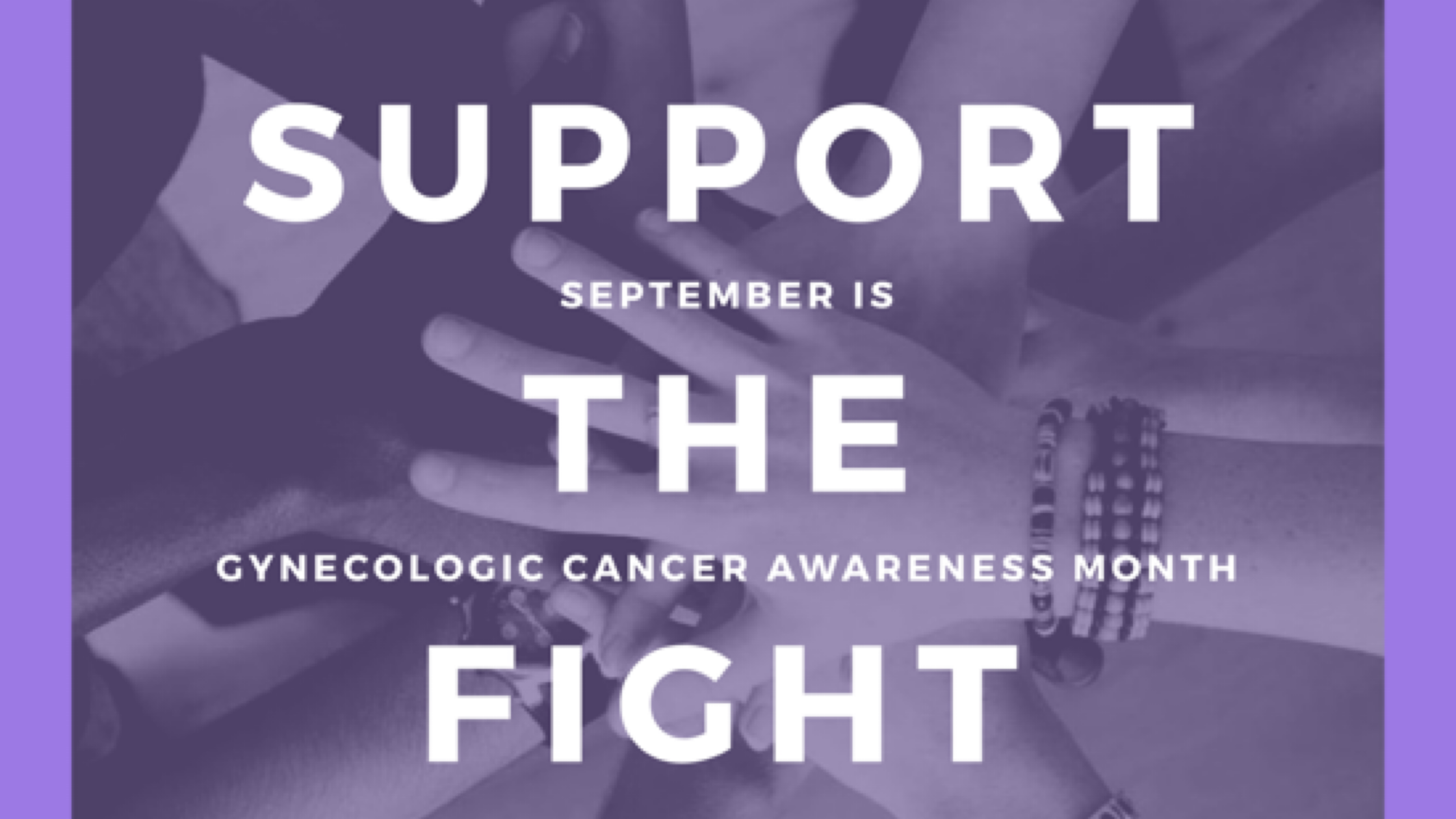
September is gynecologic and ovarian cancer awareness month. It is important to spread the word and educate women about the different gynecologic cancers, specifically ovarian cancer. If you have any questions or concerns regarding the information we will be providing, contact us to schedule an appointment.
What are gynecologic cancers?
Gynecologic cancers are cancers that start in a woman’s reproductive organs, thus making any woman at risk for developing one or more of these cancers. The American Cancer Society estimates 109,000 new cases are diagnosed each year in the United States with approximately 33,000 deaths.
What causes gynecologic cancers?
There are many factors that can lead to gynecologic cancer. Research has discovered that some classes of genes promote the growth of cancer. The abnormal function of these genes can be acquired through smoking, aging, environmental influences or inherited. Almost all cervical cancers and some cancers of the vagina and vulva cancers are caused by HPV, Human Papillomavirus.
Types of gynecologic cancers and their warning signs:
Before reading about the different cancers and warning signs, please watch this short video using the following link to hear more about things to look for.
Cervical cancer
Cervical cancer begins in the cervix which is the part of the uterus. Cervical cancer is caused by abnormal changes in cells and is the only gynecologic cancer that can be prevented through regular screenings and vaccinations.
Cervical cancer usually affects women 30-55 years old, but anyone can be at risk. Regular Pap tests and HPV testing are extremely important for prevention.
Learn more about the warning signs and symptoms of cervical cancer: Signs and Symptoms
See your doctor if you are experiencing any of these symptoms and be sure to keep up with your screenings and tests.
Uterine cancer
Uterine cancer begins in the lining of the uterus. The most common type of uterine cancer is endometrial cancer. The endometrium is the tissue shed each month during a menstrual cycle. Uterine cancer usually occurs around menopause or after, but younger women over the age of 35 are also at risk. Unfortunately, there is no screening test for endometrial cancer.
With no screening test for endometrial cancer, it is important to be familiar with the symptoms and speak to your doctor if you experience anything of concern. Learn more about uterine cancer
Ovarian cancer
Ovarian cancer is the seventh most common cancer in women and is the leading cause of death in gynecologic cancers. It usually begins in cells on the surface of the ovary. These cancer cells can implant themselves throughout the abdominal cavity.
One in 17 women will develop ovarian cancer in her lifetime and only 15% of cases will be caught in the early stages when it is most curable.
Learn more about ovarian cancer signs, symptoms, diagnosis, treatment options, and holistic support services by registering for our upcoming complimentary ovarian cancer webinar. Click Here to Register
Gynecologic cancer prevention:
Screenings and self-exams
Screening and self-examinations, when conducted regularly, can help detect certain types of gynecologic cancers in their earlier stages, when treatment is more likely to be successful.
Diet and physical activity
Diet, exercise and lifestyle can play major roles in the prevention of these cancers. Since family history can also increase the chance of developing these cancers, it is important to be informed regarding the health of family members.
To reduce the risk of developing certain types of cancers, it’s important to maintain a healthy weight, be physically active and eat a healthy diet.
Being overweight can put you at increased risk for developing uterine, cervical and ovarian cancer. A good starting point would be to engage in 30 minutes a day of moderate physical activity. Please consult your doctor before you begin any intense physical activity.
A healthy diet can also lower your risk for developing certain types of cancer.
- Try to avoid foods and drinks high in sugar.
- Eat a variety of vegetables, fruits, whole grains, peas, beans and lentils.
- Limit processed meats, red meats and salty foods.
- Limit alcohol intake to no more than one drink a day.
- Avoid using supplements for cancer prevention and discuss with your doctor before taking anything.
Gynecologic cancer treatment:
The Saint John’s Cancer Institute provides the best personalized cancer therapy. Medical and surgical treatments will be combined to fit your personal situation and needs.
Treatments for uterine cancer can include surgery, chemotherapy/radiation and biological targeted therapy and immunomodulation.
Learn more about treatment for uterine cancer
Treatments for ovarian cancer can include surgery, chemotherapy and targeted therapy. Targeted therapy uses biological medications that target weaknesses present within the cancer cells.
Learn more about treatment for ovarian cancer
Treatments for cervical cancer can include surgery, chemotherapy and radiation.
Learn more about treatment for cervical cancer
Don’t let gynecologic cancer go untreated
If you have symptoms or concerns, please schedule an appointment with one of our physicians.
Spread the word about gynecologic cancer
The Foundation for Women’s Cancer has some great socially distant ways to spread awareness of gynecologic and ovarian cancer.
- Use the hashtag #GynecologicCancerAwarenessMonth, #GCAM, #IWishIKnew when posting on social media.

